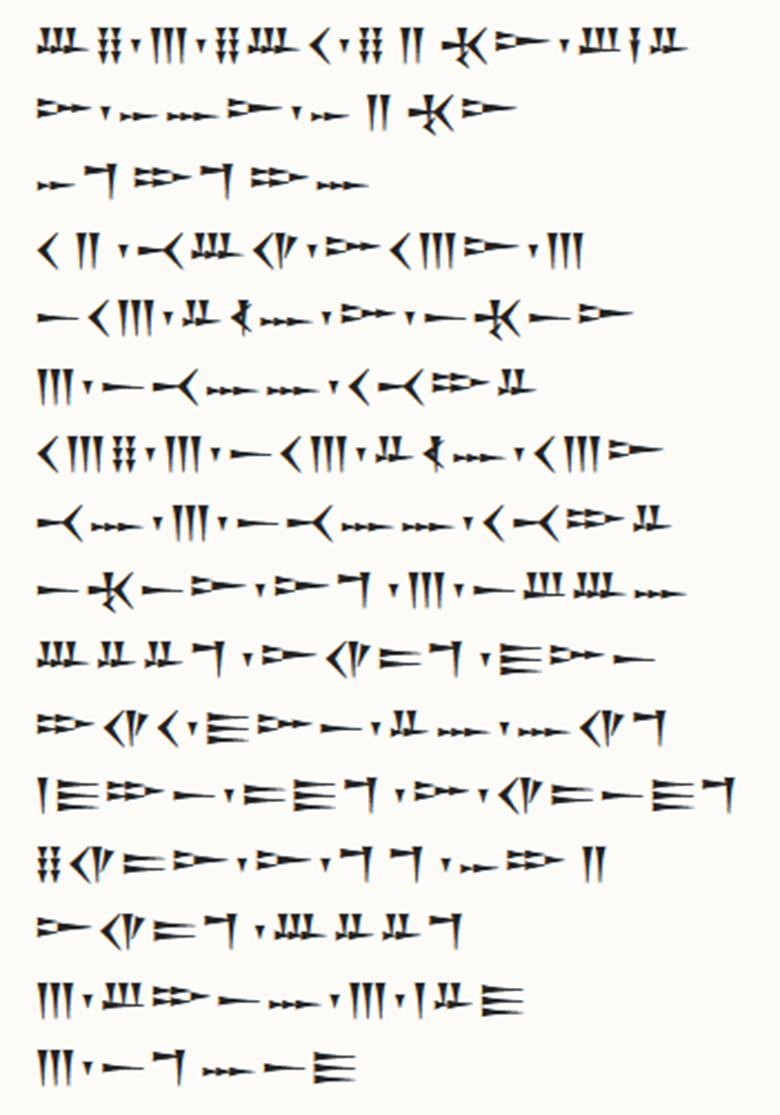Amulet to repel snakes and scorpions – KTU 1.178

An audio recording of the text in Ugaritic is available
The Ugaritic Library provides us with about 25 inscriptions containing spells and amulets on various topics. Despite their small number and the difficulty of translating and interpreting them due to their special linguistic styles, researchers began to pay attention to them because of their importance in shedding light on the religious and spiritual life in Ugarit, and on the personal beliefs of the Ugaritic population, for whom some amulets were written specifically to protect them from the evil eye and envy. , or sexual weakness, or witchcraft, evil deeds, or snakes, scorpions, and monsters. Some of these amulets were found in Ortino's library, including the symbol (KTU 1.178), which was written to protect Ortino personally from the sorcery of witches and evil deeds. And snake and scorpion bites.
This does not let you wake up
And you are the healthiest
Amarmarn
Ez Kodesh and Ealak L
Bethan will come and be beneath you
Do not codify a scorpion
Ali, lala la la bathan, upon you
Qanl Qanqan Scorpion
It hurts you so much that you don't realize it
Dabbum Kashfam Haot
Rash'ah Hut ben Nishim
I spoke to them and healed them
He will heal you as you heal your pain
Kashfm dubbum
Laartan, lajabh
To finish it

Translation:
[When] “He who is not known”* shouts to you and foams**
I [also] will shout out to you
I will anoint (anoint with myrrh oil) a holy wand
[Then] no snake will overtake you
Under you, no scorpion can be found.
No snake can get higher than you
And do not force a scorpion under you
Just as the witches' crawling is not heard
Nor the word of the evil one, nor the word of the sons of man
Nor do they open their mouths and lips.
And he pours out, like water on the ground, the creatures of magicians.
[A spell] for Ortino, for his body, for his form.
* What is not known = as in the saying of the Levantine “the one who cannot be named” or “this disease has guided you.” A similar phrase also appears in Hebrew with almost the same meaning and pronunciation in the context of talking about hateful or dangerous things, as it is said: “Sheh lo nada = שלא נדע,” meaning “perhaps we do not know him.”
** Uzb: The Ugaritic language dictionary provides a strange translation for this word, as it translates it as “hyssop plant” without evidence other than its similarity in wording to the Akkadian word zūpu, which means hyssop, ignoring that the p sound exists in Ugaritic originally, and there is no justification for changing the letter from p to b . As for the KTU Ugaritic Encyclopedia, it adopted the reading “Useb,” which can be translated as “and he turned around, and he turned around himself.” In his books A Manual of Ugaritic and Ritual and Cult at Ugarit, Dennis Pardee relied on the Arabic language to translate the Ugaritic word, which he read as zabba or zabbu, preceded by the conjunction waw, translating it to “begins foaming = foaming” according to the meaning of zabb contained in Lisan al-Arab: “Zabbab.” In a man’s mouth when he is angry, if you see two raisins in his mouth, that is, dried saliva.” And in the Arabic language as well Raisins: “The poison in the snake’s mouth; The serpent with two raisins: which has two black dots above its eyes... and it is the ugliest and most malicious of the serpents.”
Source: websites

